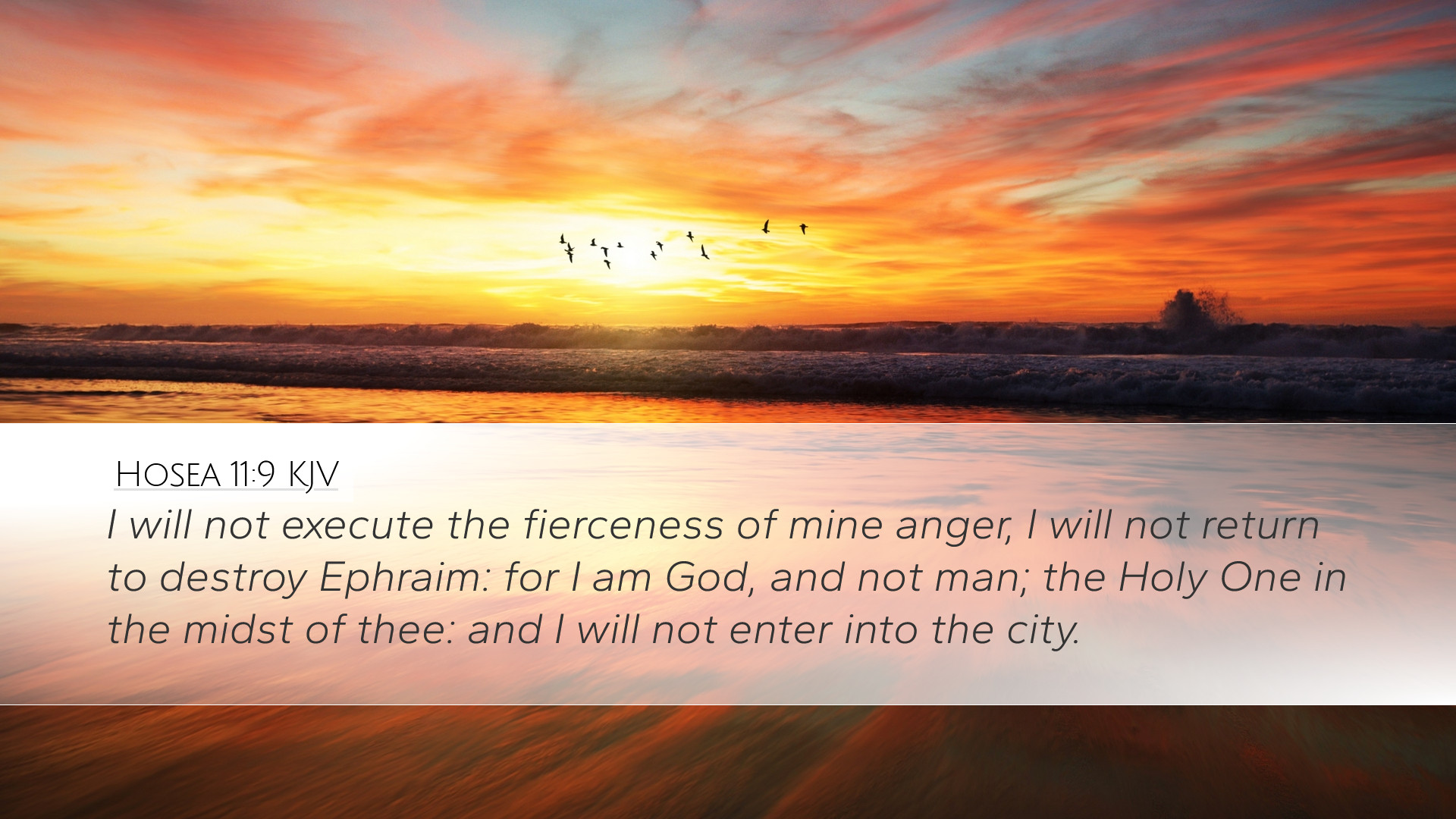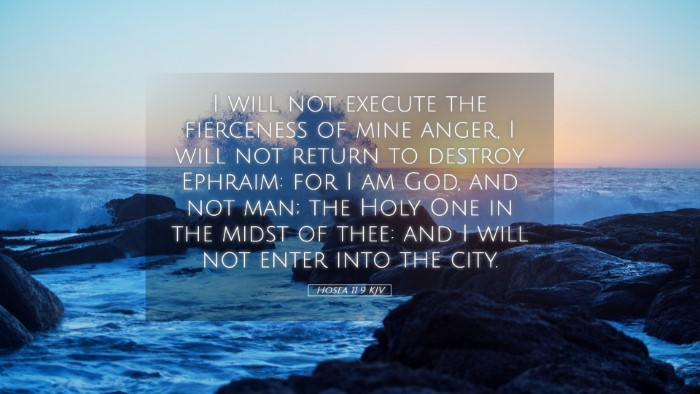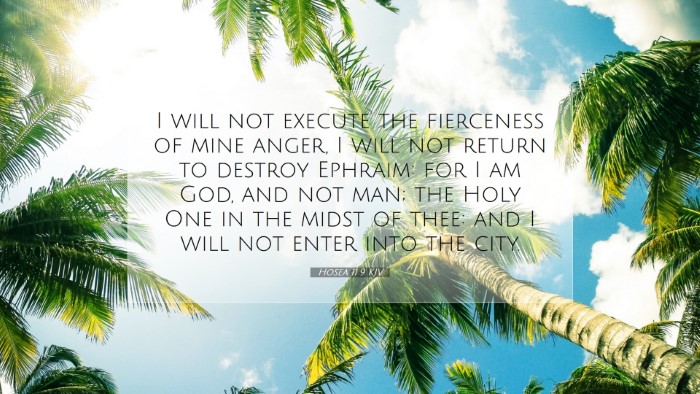Old Testament
Genesis Exodus Leviticus Numbers Deuteronomy Joshua Judges Ruth 1 Samuel 2 Samuel 1 Kings 2 Kings 1 Chronicles 2 Chronicles Ezra Nehemiah Esther Job Psalms Proverbs Ecclesiastes Song of Solomon Isaiah Jeremiah Lamentations Ezekiel Daniel Hosea Joel Amos Obadiah Jonah Micah Nahum Habakkuk Zephaniah Haggai Zechariah MalachiHosea 11:9
Hosea 11:9 KJV
I will not execute the fierceness of mine anger, I will not return to destroy Ephraim: for I am God, and not man; the Holy One in the midst of thee: and I will not enter into the city.
Hosea 11:9 Bible Commentary
Commentary on Hosea 11:9
Verse: "I will not execute the fierceness of my anger; I will not return to destroy Ephraim: for I am God, and not man; the Holy One in the midst of thee: and I will not enter into the city."
Introduction
Hosea's prophetic ministry is characterized by a deep sense of God's unwavering love, juxtaposed against the backdrop of Israel's unfaithfulness. In Hosea 11:9, we encounter a profound revelation of God's nature, especially His mercy despite humanity's propensity for sin. This verse serves as a critical turning point in understanding divine grace amidst judgment.
General Insights
The verse presents a divine declaration that emphasizes God's character and His willingness to withhold judgment. The initial phrase, "I will not execute the fierceness of my anger," reveals both God's displeasure towards Ephraim (representing the northern kingdom of Israel) and His choice to refrain from pouring out His righteous wrath.
God's Reticence in Judgment
Matthew Henry underscores that the phrase “I will not execute” reflects a divine decision, establishing that while God's anger is just, His love prevails over His wrath. The unfolding of this sentiment is critical for understanding the balance between justice and mercy within God's character.
Albert Barnes notes that God's mercy is demonstrated in this moment of restraint. He points out that through this, God shows that He is not impulsive as men are, which paves the way for a deeper understanding of divine patience.
The Nature of God
The declaration "for I am God, and not man" serves as a powerful reminder of the distinctions between the Creator and His creation. Adam Clarke emphasizes that this line portrays God as transcendent and sovereign, inherently different from human beings whose justice is often marred by emotion and caprice.
Theological Implications
The theological implications of Hosea 11:9 are significant, particularly in the context of studies on divine justice and mercy. This verse is often viewed through the lens of God’s covenantal faithfulness and love for His people.
Covenantal Love
God’s statement reflects His covenantal love, indicating that despite Israel’s waywardness, He remains committed to His promises. Matthew Henry articulates that this highlights God's compassion, and His decision not to destroy Ephraim is rooted in His eternal purpose to restore rather than annihilate.
Distinction from Human Traits
The distinction made in the verse—that God is not man—suggests a solemn truth; while human anger can often lead to hasty judgments, divine anger is marked by deliberation and purpose. Albert Barnes stresses that this illustrates how God’s decisions are always rooted in wisdom and forethought, traits not universally found among humans.
Pastoral Reflections
Pastors and church leaders can draw rich application from Hosea 11:9 in their preaching and teaching. The concepts of God’s mercy and patience can serve as foundational themes to help congregations understand the depths of God’s love.
Encouragement for the Faithful
For believers struggling with guilt from past transgressions, this verse provides profound encouragement. It reassures them that divine judgment does not have to be definitive, emphasizing God's desire to mend and heal rather than destroy. Adam Clarke encourages the faithful to embrace this aspect of God's character, transforming their understanding of divine correction as an instrument of restoration rather than merely punishment.
Conclusion
Hosea 11:9 encapsulates a theology of grace that has profound implications for our understanding of God’s nature. Through this verse, we glimpse the divine balance of justice and mercy, provoking deeper reflection on how we, as reflections of God’s image, can embody these virtues in our interactions with others.


